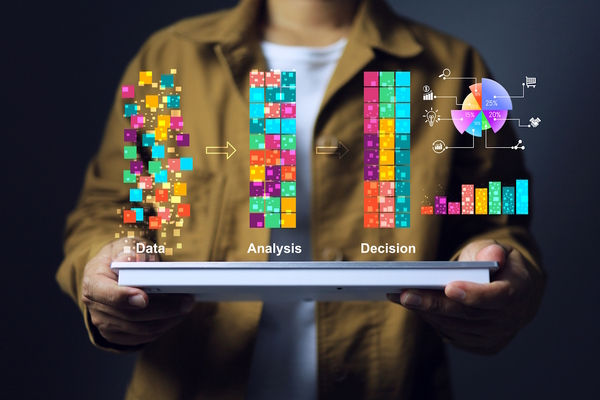Building soft skills collaboratively

Sarah Towers at Entec Si describes the benefits of scaling up soft skills with a blended team approach
Investment in soft skills is paramount for today’s businesses to remain productive and resilient. However, with the evolution and future success of a business at stake, upskilling workers can no longer be a death-by-presentation exercise. It’s time for a more collaborative and hands-on coaching style, such as the blended team approach, to be adopted.
The role soft skills play in a business’ performance is well documented; research has shown that a lack of low essential skills, aka ‘soft skills’, development costs the UK economy around £22.2 billion annually. This is largely because more than 50 per cent of workers have missed out on opportunities to build essential skills such as leadership, problem solving and teamwork.
Non-technical and people-focused, soft skills are important attributes for maintaining healthy internal and stakeholder relationships, driving productivity and delivering change for good in the business. For example, collaboration is essential for effective project management to gauge timelines and team capacity whilst work ethic is an increasingly valuable asset in hybrid working environments where employees are spending more time unsupervised by management.
It follows that soft skills are a fundamental pillar of business change. Any initiatives involving people change, from organisational restructures to digital transformation, require strong communication and emotional intelligence to set expectations, address individual barriers to change adoption and secure buy-in at every level of the workforce. Typically, the most successful and long-lasting change journeys are completed by companies that recognise business change cannot be achieved without engaging the people enacting and impacted by it. Irrespective of seniority and role, change for good needs all workers to exercise soft skills.
Communication is one soft skill that deserves a little more airtime in this regard. Whilst the whole workforce must be united under the same purpose – what is being changed and why - a one-size-fits-all approach should be avoided when collaborating on the change journey.
For example, to execute a digital transformation, employees may require training and advice to use new software whilst managers will need to know how to support and guide this effort. The purpose of the digital transformation is the same for both groups, but the actions to ensure its success are different. Where feasible, conducting informal, one-to-one meetings between each worker to clearly discuss their role in change and the benefits it will bring will help to encourage their engagement and ensure they are comfortable to fulfil expectations.
Personal communication can also unlock new ideas and perspectives on change that individuals may not have the opportunity to share in workshops or group meetings.
With communication channels becoming more diverse across a multigenerational workforce, adapting this soft skill to maintain productive ways of working is key too. Research has shown that where employees aged between 16 and 34 typically use text messages and WhatsApp to communicate in the workplace, those over 35 remain loyal to emails.
It’s therefore the responsibility of all workers to adjust how they communicate – both literally and in the language or tone used - depending on who they are talking to. Liaising with external stakeholders in senior positions may require a more formal approach than speaking to a colleague, for example.
That said, the modern communication channels used by younger generations need to be embraced given their place as future business leaders and the continuing digitisation of the business landscape.
When it comes to upgrading soft skills in the workforce, a greater focus on the blended team approach is important. This coaching technique requires someone with experience in a given skill or activity to help another person or team develop that ability through demonstration, guided practice and finally allowing the person to perform it autonomously.
In the context of building soft skills, this means illustrating what these are to the workforce and providing a safe space for them to be developed. Collaborative peer-to-peer work is a useful tool for putting the blended team approach into practice; it naturally allows workers to exercise soft skills such as problem-solving, creativity and empathy whilst encouraging open-mindedness about different perspectives.
This is an opportunity for workers to see that seniority does not guarantee having the right answers and that using diversity of thought to adapt solutions often reaps better rewards. It’s what makes the blended team approach invaluable during business change: encouraging all members of the workforce to become independent thinkers and leaders, adopting shared ownership in the change journey.
Taking a hands-on, people-centered approach to soft skills development will prove beneficial for business as usual too. Adaptability and critical thinking are crucial in everything from Board meetings to tendering. In these circumstances, knowing the interaction’s purpose, whether the audience can provide the input or solutions required and tailoring the discussion to suit, is essential.
Soft skills are therefore not a nicety but a necessity for business change and resilience. In today’s competitive business world, using a practical, collaborative approach to upskilling workers will only build up the organisation for the better.
Sarah Towers is the director of operations at business change consultancy, Entec Si.
Main image courtesy of iStockPhoto.com and andresr

Business Reporter Team
Most Viewed
Winston House, 3rd Floor, Units 306-309, 2-4 Dollis Park, London, N3 1HF
23-29 Hendon Lane, London, N3 1RT
020 8349 4363
© 2025, Lyonsdown Limited. Business Reporter® is a registered trademark of Lyonsdown Ltd. VAT registration number: 830519543





